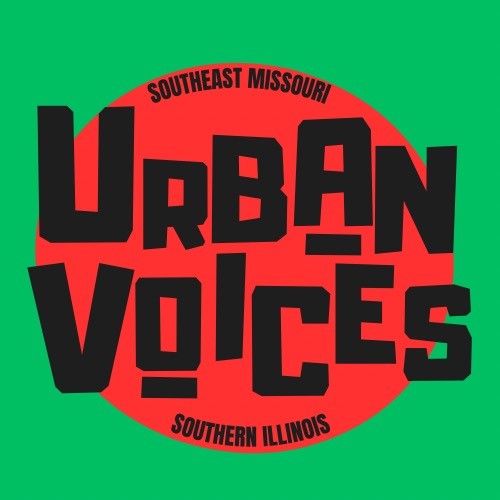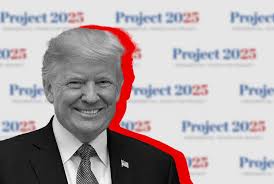The election of Donald Trump to a second term in the White House has sent waves of anxiety through Black American communities, whose concerns about his policies and rhetoric are not unfounded. Throughout his first term, Trump championed divisive policies that directly undermined Black civil rights, and many fear that a second term will bring even more harm.
From racial justice to economic opportunity, a Trump administration poses significant risks for Black Americans. Trump’s re-election campaign has been framed around a message of revenge and retribution, with a focus on punishing vulnerable groups and those he considers his enemies. The growing Republican dominance in Congress, including a newly re-secured Senate and likely continued control of the House of Representatives, further compounds fears that efforts to advance racial equality may be severely hindered.
In the face of this sobering reality, organizations like the NAACP have reaffirmed their commitment to protecting the civil rights and dignity of Black and marginalized communities. In a statement, the NAACP declared, “Our commitment to social justice and equity is as resolute as ever.” Despite the challenges ahead, many civil rights organizations are preparing to fight back against policies that threaten Black Americans.
Trump has long touted his economic record as a success for Black Americans, often claiming he has done more for the community than any president since Abraham Lincoln. However, his policies tell a different story. During his first term, Trump’s economic initiatives, including corporate tax cuts and increased military spending, disproportionately benefited the wealthy while leaving struggling Black communities behind.
The tax cuts passed under his administration primarily helped corporations and high-income individuals, contributing to a growing wealth gap. Trump’s proposed trade policies, such as tariffs on China, will lead to higher costs for everyday goods, further burdening working-class Black families. While progressive policies like expanding the child tax credit and increasing healthcare spending—proposed by Vice President Kamala Harris during her campaign—could have provided tangible relief. Trump’s agenda offers little hope for economic improvements for Black Americans.
One of the most alarming aspects of Trump’s second term is his vision for the U.S. Department of Justice. During his first term, Trump frequently used law enforcement as a political tool, targeting his perceived enemies, including journalists, racial justice activists, and political opponents. In his re-election bid, Trump openly discussed plans to use the DOJ to prosecute those who challenge him, posing a direct threat to civil liberties. Trump’s rhetoric suggests he views the Justice Department not as an impartial legal body but as an extension of his personal power. For Black Americans, already disproportionately affected by the criminal justice system, this could result in intensified surveillance, arrests, and prosecutions of those advocating for racial justice. The weaponization of law enforcement against marginalized communities would exacerbate existing inequities in the legal system.
Reproductive rights, especially for Black women, are another area where Trump’s policies have raised serious concerns. Throughout his first term, Trump consistently pushed for restrictions on reproductive healthcare access. In a second term, he would likely continue efforts to limit abortion access, including measures to restrict abortion pills and reimpose outdated laws such as the Comstock Act. Black women, who already face systemic barriers to healthcare, would be disproportionately affected by these policies. Trump’s legacy of appointing conservative judges, including the three Supreme Court justices who helped overturn Roe v. Wade, has already had devastating consequences. Further judicial appointments under Trump would solidify a conservative judiciary, making it even harder to protect women’s reproductive rights.
Trump has been a vocal opponent of policies designed to address racial inequality in education and the workforce. During his first term, his administration targeted diversity, equity, and inclusion (DEI) programs, attempting to eliminate them through executive orders and federal regulations. This ideological push to dismantle policies addressing systemic racism threatens the progress made in creating equitable opportunities for Black Americans.
Trump’s opposition to student loan debt cancellation further compounds these challenges. Black borrowers, who carry a higher average amount of student debt than their white counterparts, would benefit significantly from debt relief. However, Trump’s refusal to support such initiatives, along with his praise for the Supreme Court’s decision to gut affirmative action, signals that his second term would bring setbacks in education and economic opportunity for Black Americans.
Trump’s approach to LGBTQ+ rights, particularly his treatment of transgender individuals, has been another point of concern. His first term saw the implementation of policies that openly discriminated against transgender people, including banning them from serving in the military. Trump has vowed to reinstate this ban in a second term, further marginalizing transgender individuals, particularly transgender people of color who already face high rates of violence and discrimination.
Beyond military service, Trump has expressed intentions to restrict access to gender-affirming healthcare. Black transgender individuals, who are among the most vulnerable members of the LGBTQ+ community, would face heightened discrimination and reduced access to necessary medical care. By framing LGBTQ+ rights as a divisive issue, Trump’s rhetoric fosters an environment of hostility and exclusion.
Trump’s immigration policies have been a source of deep concern for Black Americans, particularly Black immigrants. Throughout his political career, Trump has demonized immigrant communities, with a particular focus on immigrants from countries like Haiti and sub-Saharan Africa. His disparaging remarks about Haitian immigrants exemplify the racist and xenophobic narratives he has perpetuated. In a second term, Trump has promised to intensify his anti-immigrant agenda, including mass deportations and further crackdowns on undocumented immigrants. These policies would exacerbate racial tensions and create additional challenges for Black immigrants, who already face discrimination and systemic barriers.
Trump’s denial of climate change and rollbacks of environmental regulations are particularly troubling for Black Americans, who are disproportionately affected by environmental racism. Many Black communities live in areas vulnerable to environmental hazards, such as pollution and extreme weather events. Under Trump’s leadership, the federal government dismantled protections designed to combat climate change, placing these communities at greater risk. Trump’s dismissal of climate change as a “hoax” and his rollback of environmental protections are expected to continue in a second term. For Black Americans living in vulnerable areas, these policies signal continued neglect and disregard for their health and well-being.
Beyond policy implications, Trump’s re-election represents a psychological blow to many Black Americans. For those who hoped to see progress under Vice President Kamala Harris, Trump’s victory feels like a step backward. It reinforces fears that racial justice and equality remain low priorities for the nation.
As Black Americans reflect on the election results, a sense of dread looms large. However, civil rights organizations remain steadfast in their commitment to protecting the rights and dignity of marginalized communities. Grassroots movements and advocacy efforts are gearing up for a renewed fight against policies that threaten Black Americans.
Despite the challenges posed by a second Trump administration, the fight for Black equality is far from over. The stakes have never been higher, but neither has the resolve to push for progress. From economic justice to reproductive rights, the battle for racial equality will continue in communities, courts, and Congress.
For Black Americans, the struggle for justice is not just political—it is deeply personal. Regardless of who occupies the White House, the commitment to advancing racial equity remains unwavering. The fight will persist, fueled by the belief that a more just and equitable future is possible.


































